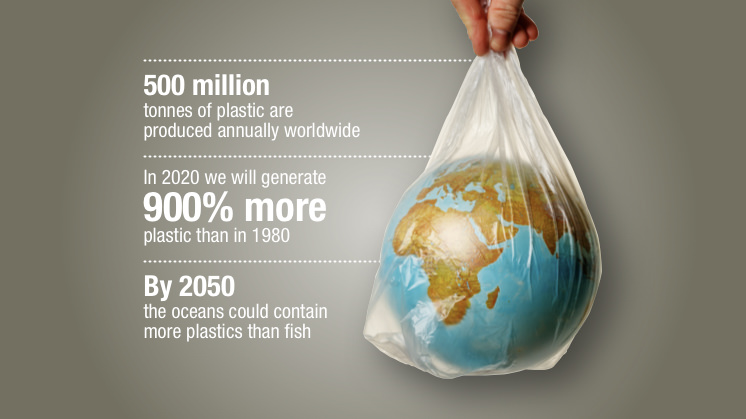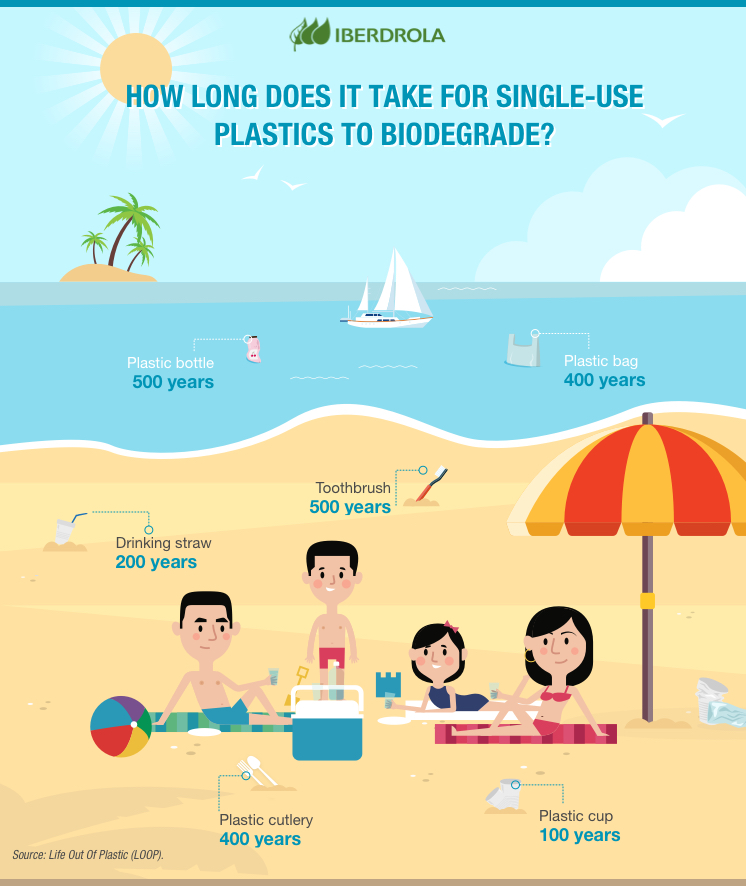How to reduce your plastic consumption
Reduce your plastic consumption and lessen its impact on the environment
The plastics's invasion of the planet is a reality. Just remember that the plastic waste island floating in the Pacific Ocean now measures 1.6 million km2. If we want to save the planet, the time has come for each and every one of us to take action.

Plastic has become a constant element in our lives. It's everywhere: product packaging, cosmetic ingredients, textiles, mobile phones, etc. It's even in the chewing gum you might be chewing on right now! Its omnipresence is such that many would find the mere fact of giving it up a difficult task. Reducing the consumption of plastics therefore requires not only a change in habits, but also a change of mindset.
Plastics, a global problem
The fact that plastics are now a serious headache for the planet is proved by the fact that more and more governments are proposing measures to reduce their impact on the environment. In fact, in 2021 Europe will ban the sale of single-use plastics such as drinking straws, cutlery or cotton buds within its borders. To put the magnitude of the problem into context, let's review some objective data:
-
Every year, 500 billion plastic bottles are produced worldwide.*
-
In 2020 we will generate more than 500 million tonnes of plastic, 900% more than in 1980.*
-
Plastic in the ocean is already more than 150 million tons of waste.**
-
By 2050, they could contain more plastics than fish.***
-
Each year around eight million tons of plastic ends up in our seas and oceans.*
While on the subject of single-use plastics, which account for half of the plastic we use each year, they have an average useful life of 12 to 15 minutes and yet can take up to 500 years to disappear, according to Life Out Of Plastic (LOOP). Plastics outlive us and will outlive our children. The good news is that it is in our hands, as consumers, to turn this situation around. We have the power to make manufacturers change the way they produce. How? By changing the way we consume.

Tips for reducing your plastics consumption
Minimising he consumption of plastics is much simpler than it seems. Here are some tips that can change your life and the life of the planet:
 Avoid single-use plastics such as drinking straws
Avoid single-use plastics such as drinking straws
Single-use plastics, such as plates and cutlery made from this material, make our lives easier, but seriously harm the planet. These types of products have viable alternatives and there is an urgent need to chose these.
 If you go shopping, remember to take a cloth bag
If you go shopping, remember to take a cloth bag
We go to the supermarket at least once a week to fill up our fridges. If every time we go we use reusable bags (cloth, string or wicker) the health of our planet will improve. From now on remember to take yours when leaving the house.
 Recycle chewing gum... it's also make of plastic!
Recycle chewing gum... it's also make of plastic!
Most chewing gum currently on the market contains plastic. Try to buy less chewing gum and throw it in the correct recycling container. You can also opt for natural and organic chewing gums.
 Buy more bulk food and fewer packaged products
Buy more bulk food and fewer packaged products
Disposable containers are inundating supermarkets (polystyrene trays, PET bottles, tetra paks, plastic containers, etc.). But there is an alternative: more and more establishments are offering the possibility to buy in bulk.
 Replace plastic Tupperware for glass or steel containers
Replace plastic Tupperware for glass or steel containers
If you eat at work, a Tupperware container is part of your day. We suggest you change your routine and opt for glass or stainless steel containers. Not only will the planet appreciate it, so will your health because some of these plastic containers can release harmful substances.
 When hanging out washing use wooden pegs instead of plastic ones
When hanging out washing use wooden pegs instead of plastic ones
Even the smallest of actions can have a major positive impact on our planet. For example, something as routine as hanging out clothes can become an extraordinary act if we change from plastic to wooden pegs.
 Make those around you aware of the importance of reducing the consumption of plastic
Make those around you aware of the importance of reducing the consumption of plastic
If, in addition to reducing your consumption of plastic, you manage to get your family, friends and co-workers to do the same by setting an example, the impact of your actions for the good of the planet will increase exponentially.
 Pay attention and put your plastic waste in the correct recycling container
Pay attention and put your plastic waste in the correct recycling container
Our lifestyle sometimes prevents us from paying attention to details. Therefore, when it comes to recycling plastic waste it can end up in the wrong container. Before throwing your waste away, think where each item has to go.
 Avoid using cosmetics that use micro-plastics, buy a biodegradable brush and wear natural fabrics
Avoid using cosmetics that use micro-plastics, buy a biodegradable brush and wear natural fabrics
The market today offers an array of alternative plastic-free products and the options are increasing. From lipsticks free of micro-plastic or brushes made of wood to t-shirts made of natural fabrics.
 Choose to reuse and give some of the packaging a new purpose
Choose to reuse and give some of the packaging a new purpose
If you have no choice but to buy a plastic bottle or a plastic container at the supermarket, reuse it instead of throwing it away. A bottle can be filled up as many times as you like and containers can be used to store other food.
* Source: Greenpeace.
** Source: European Parliament.
*** Source: The World Economic Forum.
Circular economy model at the Iberdrola Group
At Iberdrola, we work to be more respectful of nature in our three strategic sustainability areas: climate action, biodiversity protection, and circular economy.
For this reason, our sustainable business model is based on the circular economy model, a system for making the most of resources in which priority is given to reducing the use of new raw materials through efficiency in processes, product life extensions, and a firm commitment to the reuse and recycling of materials.




